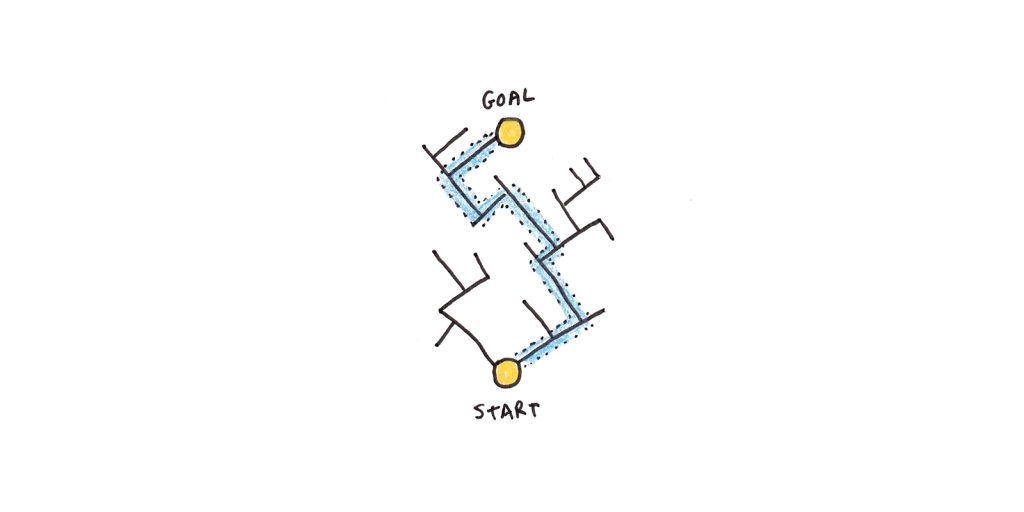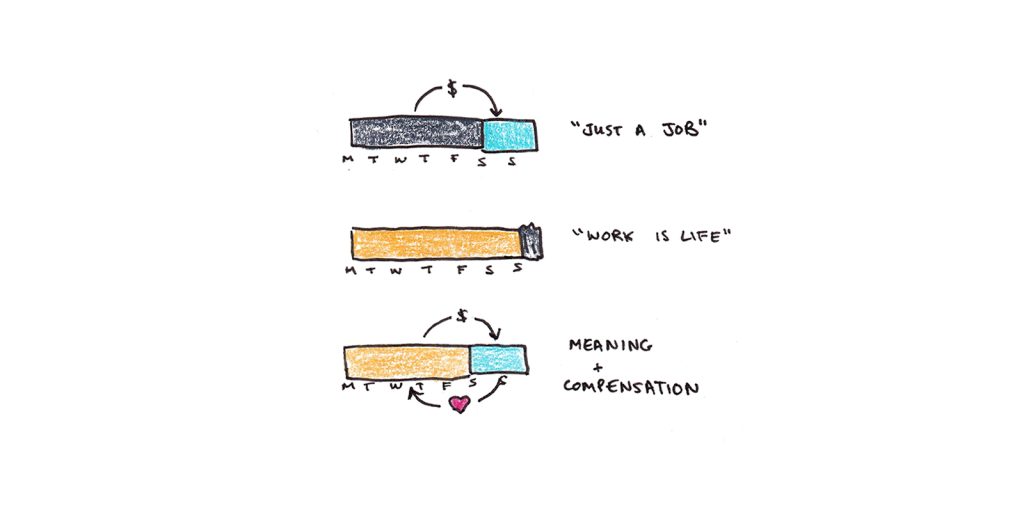Its a worldwide opinion that we learn increasingly from failure than success.
The wisdom of learning from failure is incontrovertible, says Harvard Merchantry Review. Learning from failure fosters creativity and helps you become increasingly resilient, equal to another essay. When Thomas Edison was asked if he was disappointed with his lack of results in finding a workable lightbulb filament, he replied, I have gotten a lot of results! I know several thousand things that wont work.
Here, though, the feel-good opinion is wrong.
We often dont learn increasingly from failure than success. In cases where there is value in mistakes, failure is followed quickly by success, rather than prolonged struggle. The reason is simple math.
Success, Failure and Information Theory
That we often learn increasingly from success than failure is evident from the principles of information theory.
Information theory was ripened in the 1940s by mathematician Claude Shannon. The vital idea is that information is the reduction of uncertainty. Consider flipping a coin. Surpassing I flip, there is an equal endangerment the outcome will be heads or tails. Without the flip, I know only one of those results occurredthis halving of uncertainty results in one bit of information I didnt have before.
The information gained from flipping a forge is symmetrical. Heads and tails are equally likely, so I learn the same value from experiencing either event.
This doesnt hold if one outcome is far increasingly likely than another. If I try to unshut a 40-number combination lock with a random, 3-digit code, my endangerment of opening it is only one in 64,000. Failure here only reduces the space of possibilities by onehardly any information at all. In contrast, if I had opened the lock successfully, I would have eliminated any remaining uncertainty.
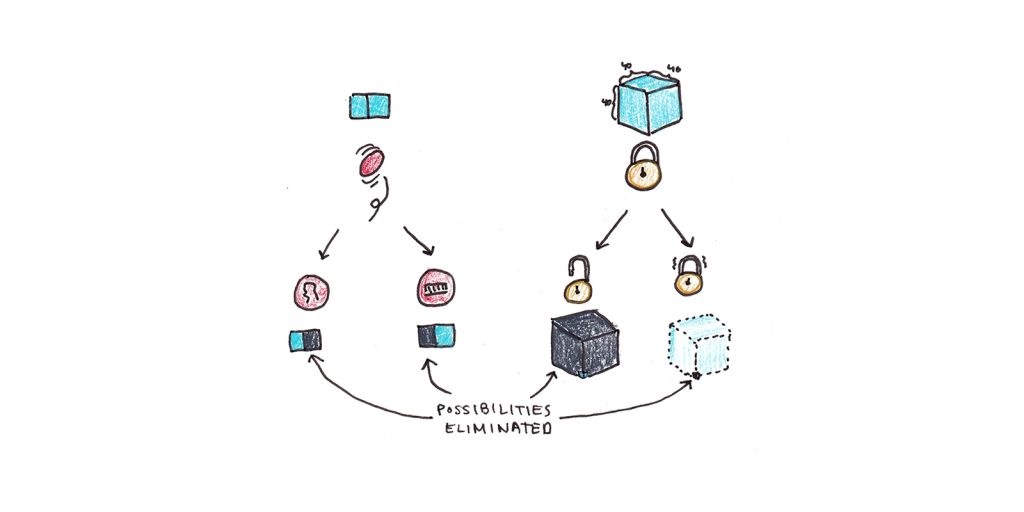
In the combination-lock example, success teaches you far, far increasingly than failure.
Running a merchantry is like finding a combination that opens a lock. You need the right mixture of product, team, marketing, and consumer needs to have a successful outcome. Failure is increasingly likely than successmost products and businesses underperform or goof outright. Thus, you proceeds exponentially increasingly information well-nigh what works when you find a hit than you do with a misfire.
In contrast, failure can be highly instructive in some domains. Plane crashes happen rarely, so when one does occur, much potential information can be gleaned well-nigh the source of the disaster. Our knowledge of piloting is so wide that successful takeoffs and landings dont reduce uncertainty by much at all.
Of course, this doesnt midpoint a pilot learns to fly by crashing a lot. When you start flying a plane, most settings of the controls would result in a crash if unfixed. Its simply that, society as a whole benefits from thorough investigation of plane crashes considering trained pilots rarely have such severe mistakes.
Most domains of learning are like the novice pilot, entrepreneur or combination-lock. There are far fewer conditions that enable success than those that indulge for failure. Thus, learning what works imparts far increasingly information than learning what doesnt work.
Despite Edisons optimism, his learning process would have ended immediately had he started with tungsten instead of trying out thousands of materials that ultimately didnt work.
Studies on productive failure and learning from errors find benefits to making mistakes in learningif those mistakes are promptly corrected. When a successful example or touching-up feedback immediately follows every failure, the information difference between success and failure is eliminated.
Outside a classroom, failure is seldom followed by a lesson telling you exactly how you should have washed-up it.
What Well-nigh Emotions? Failure Discourages Effort
Perhaps Im stuff too coolly rational in my wringer here. Dont emotions factor into learning as well? Isnt failure a unconfined teacher emotionally, plane if it doesnt provide informative lessons?
Here too, the boon of learning from failure is overstated.
Failure is discouraging. Experiencing resulting failure lowers motivation. In lattermost cases, it can lead to learned helplessness, and you stop trying plane when success is plausible.
Success, in contrast, is motivating. It builds self-efficacy and confidence, which are related to greater motivation in learning. If you wits success in early mathematics, it boosts your conviction when attempting higher mathematics, so youre increasingly likely to persist when you wits setbacks.
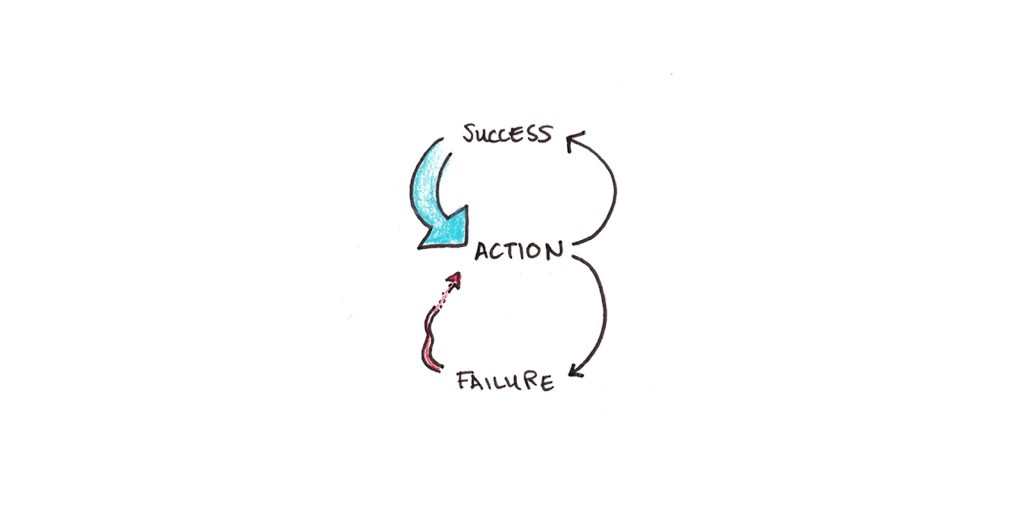
What well-nigh grit and perseverance? They matter, but its important not to misplace the right way to process failures (persistence) with the idea that failure itself makes us better.
Grit comes from the weighing that, despite current failures, success will be forthcoming. Where does such a weighing come from? Id oppose that it comes from a preliminaries of confidence, either from your own past successes or from witnessing or learning from others successes.
The idea that failure is inherently character-building seems dubious to me. Repeated failure requiresbut it doesnt buildgrit. Its experiencing success without persisting through failure that reinforces perseverance.
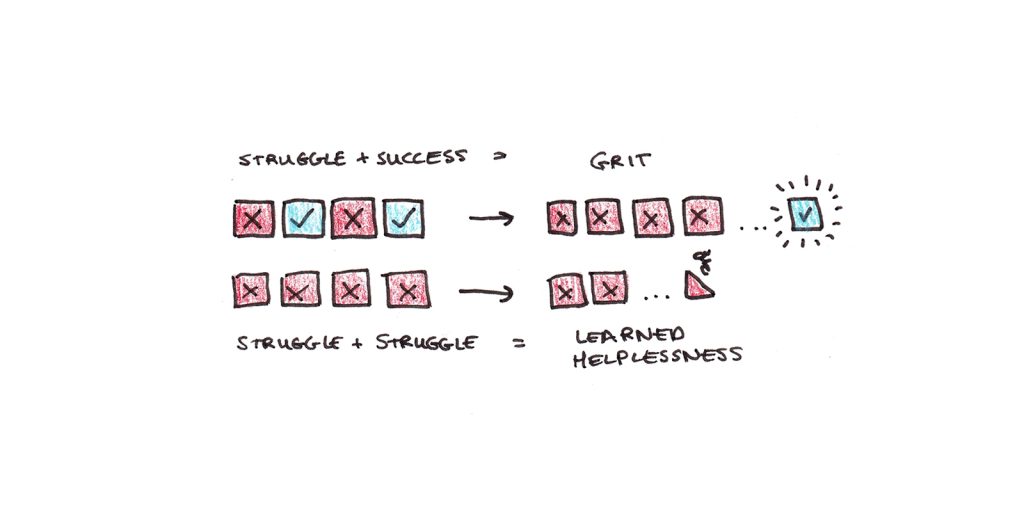
Only taking on easy problems doesnt impart grit. But neither does resulting failure on nonflexible problems. Its taking on challenging problems AND succeeding in them that matters.
Overlearning from Failures
Maybe you think Ive missed the point.
The point isnt that failure is inherently valuableeither emotionally or informationallybut that we cant unchangingly tenancy when we wits failure. Thus we should prefer a positive vein towards it.
In this case, I agree. Failure and mistakes are often unavoidable. To the extent that we can have a healthy attitude, I think leaning toward perseverance is often wise. (Although persisting in doomed projects is an underappreciated problem.)
However, theres flipside danger of translating like thiswe can hands overlearn from failures.
Many failures are like our combination-lock example: the specific thing we tried didnt work. It would be disastrous to infer, without guessing 20-12-32, that the very lawmaking couldnt contain any of those numbers, any plane numbers, or any middle-low-high sequence. Those lessons are overeager attempts to proceeds increasingly information from the failure than is unquestionably there.
Similarly, we can hands over-infer from our circumstances when we wits a merchantry failure, a lousy relationship or a bad job. The very reasons for our failure may be specific. Yet we extrapolate those to anything that resembles the original condition. A partner that cheated on you, for instance, might convince you that all partners are potentially unfaithful.
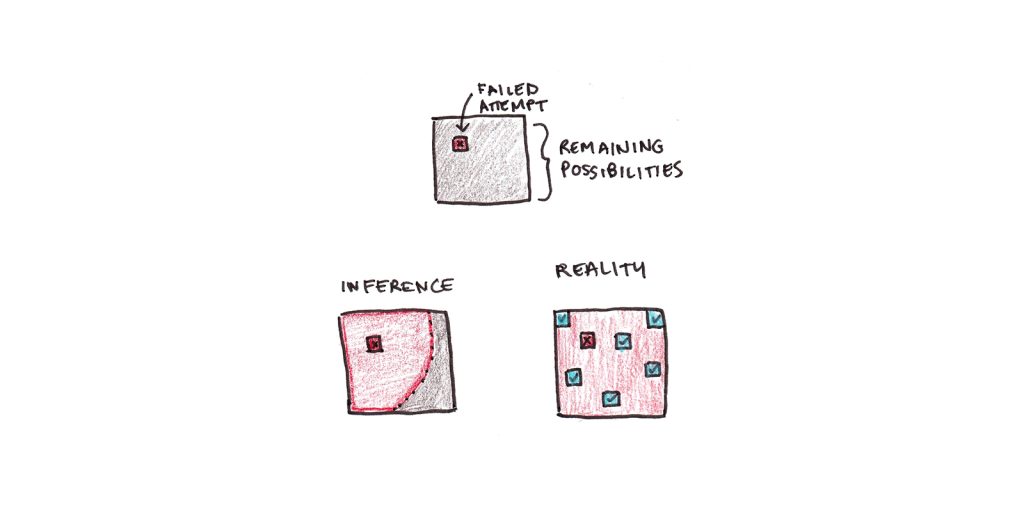
In many cases, the healthy vein to failure is to move on. Alimony a mental note of any patterns surrounding your failed exercise, but dont expect definitive lessons well-nigh what works to sally when success is relatively infrequent.
Planning for Success
Overall, we learn increasingly from success than failure. Success is both increasingly informative and motivating. When struggle is helpful, it tends to be followed by success.
Of course, success isnt something we can guarantee. Our ignorance well-nigh what makes something successful is what makes success informative in the first place.
Even so, we can take steps to build toward success:
- Build successes in small increments. If youve never succeeded at a year-long project, try a month-long project. If your month-long efforts have fizzled, try a weekend. If youve never written a book, start with an essay. If you havent launched a company, try finding a single client.
- Pick challenges where success is likely, but not certain. The 85% rule for learning suggests we aim for roughly five successes (and one failure) out of every six attempts. The word-for-word percentage is less hair-trigger than the suggestion that succeeding most of the time is our aim. If were lightweight much increasingly than this, our expectations are out of whack, our projects are too difficult, or we havent gotten the training to do what were attempting.
- Learn the nonflexible lessons from others first. When failure is likely, uncork by learning as much as you can well-nigh what works by studying others success. The increasingly you understand what the success pattern looks like for a particular endeavor, the less youll need to learn through trial and error.
- When you do fail, alimony moving. Catastrophic, unexpected failures do offer lessons for introspection. But run-of-the-mill failures often dont. Overinterpretting the lessons of failure can be just as bad as, or worse than, not learning anything from it. When failure is the status-quo, the weightier thing to do in the squatter of failure is to alimony trying.
Experiencing failure can build some valuable weft traits: compassion, humility and gratitude. In this sense, failures are not wasted experiences. And when we do encounter them, its probably weightier to see them in a positive light.
But, we should stave exaggerating this silver lining into yoyo that the weightier path to success is a string of failures, expressly when we can segregate an volitional route.
The post Failure is a Lousy Teacher first appeared on Scott H Young.
The post Failure is a Lousy Teacher appeared first on Scott H Young.

